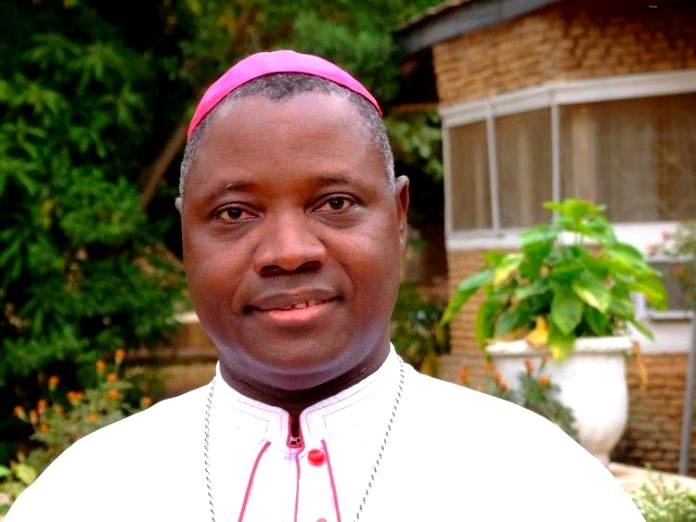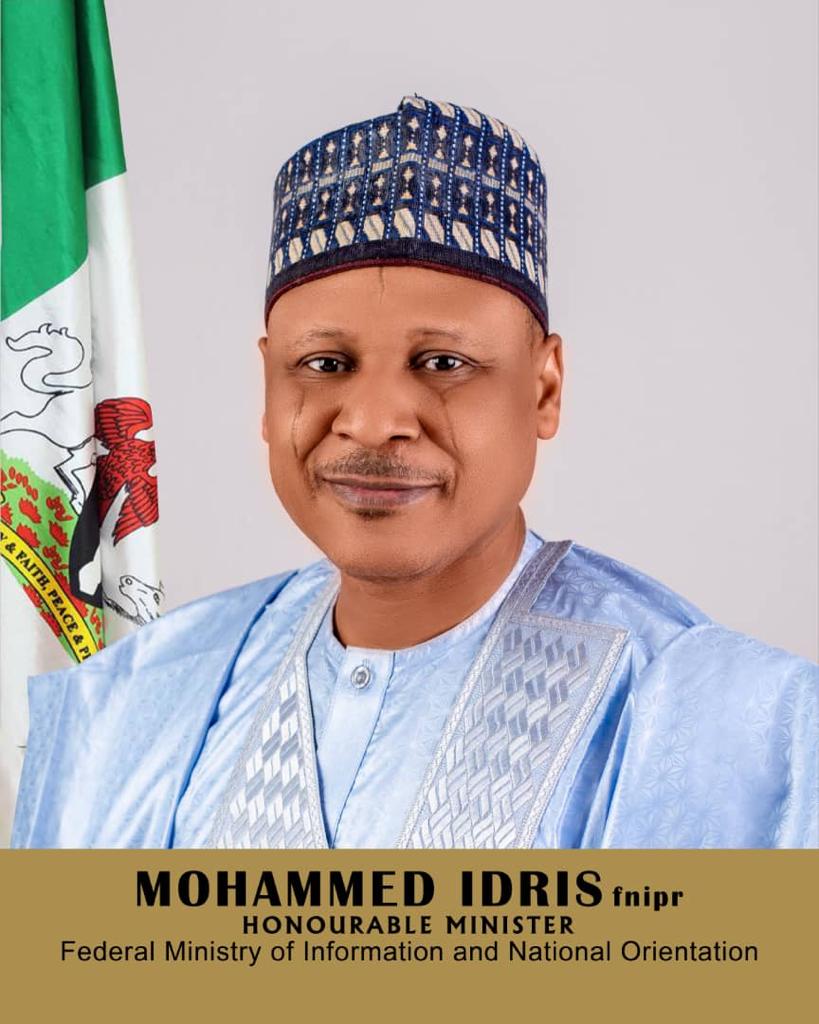 In journalism, we say that the 99 planes that took off and landed safely have no news value. It is the one plane that crashed that makes the front page. But Nigeria is heading to being an exception to this news judgment analogy because a plane crash is becoming the rule rather than the exception. Governors and former NSAs are falling from the sky to death.
In journalism, we say that the 99 planes that took off and landed safely have no news value. It is the one plane that crashed that makes the front page. But Nigeria is heading to being an exception to this news judgment analogy because a plane crash is becoming the rule rather than the exception. Governors and former NSAs are falling from the sky to death.
In spite of the unbelievable advances in avionics, there are still many reasons why planes crash – from acute engine crisis to weather conditions to the human factor. What is clear in the analysis of plane crashes in the United States of America, for example, is the conflicting role of the superintending bureaucracy, the Federal Aviation Administration, (FAA). A 2011 reviewer of Why Airplanes Crash: an accident investigator’s fight for safe skies, the book by David Soucie and Ozzie Cheek took a particular note of what he called a salient observation by the author to the effect that the FAA has a twin mandate — “providing for aviation safety and promoting aviation as a business enterprise”. He continued, “Like a dog with two masters — each with a leash — on a walk, it goes in the direction the stronger master wishes. Between promoting business interests and safety, would you care to select which mandate is promoted over the other? Would it perhaps be surprising to learn that the National Transportation Safety Board (NTSB) has laid significant portions of accident blame at the doorstep of the FAA?”
The fact that it will take many years before we can fly without a pilot means the human factor is still the issue in airplane crisis management. But the human factor here is not in terms of pilots and their bloody or costly occasional errors alone but the profit calculus of our businessmen and women who run the industry and the bureaucrats in regulatory agencies who allow them have their mindless ways. That is the heart of the matter in Nigeria. That is where President Jonathan, Tambuwal, Nigerian Governors Forum and all the other very powerful individuals who have all said the appropriate things in situations like this should start with if they mean to restore order in the Nigerian air system instead of escapism into probes. Adieu, Patrick Yakowa, a man of History.
…Bamidele Aturu and the Irony of Radicals in Nigerian Politics
In response to last week’s column titled “Salihu Lukman, Opposition’s Manifesto and the Radical Activists’ Dilemma in Nigeria”, the restless Lagos comrade, pastor and barrister, Bamidele Aturu, sent in this short protest and his own memory lane. “We were not noise makers. I think it was passion for our country and the desire for change. I cannot forget one sunny day in Lagos. An argument had broken out in Ogaga’s (i.e Ogaga Ifowodo, the then UNIBEN Law student always looking for tissue paper to write poetry while in detention at Inter-Centre in Lagos. He is now a Literature teacher somewhere in the US) one room apartment at Alaka in Surulere (apartment courtesy Prof Itse Sagay). I remember that Labaran Maku, Chima Ubani, Ogaga, Alhaji Azeez, myself and one other person who happened to be a relation of Labaran and who was visiting him from Nasarawa was in that company. We later left in Labaran’s company bus (the Meridian, I think). The argument continued until we got to John Odah’s house. Naturally, Odah joined and, of course, served us tea as usual. The man from Nasarawa could not bear the situation. After apparently admonishing Labaran to no avail, he beckoned on me, with Labaran close by and advised that we stop disgracing ourselves in Lagos by arguing all over the place. Labaran, with his usual mischievous handshake waved the man aside and asked me not to mind him. Of course, I didn’t mind him. Of course, Chima used to ‘annoy’ Ogaga to no end by always insisting that his grandfather was one of the best literary persons that ever lived. The crucial question now is:what happened to our idealism and passion for change. Can we not still
rescue this country from the cabal? BF”
Contrary to my never making a comment on my column the subject matter of a subsequent column, BF’s ‘rejoinder’ is treated differently because there is a factual error and a poser to all of us from him. That is where he asked about what happened to the idealism and passion of that generation.
The factual error is where he implied I said comrades were noise makers. The word noise in my essay was in quote. The substantive issue is his poser. It is not addressed to me as such but I am also perplexed by that reality as argued by Ekiti governor, Kayode Fayemi in Lukman’s book. It is the poser of the moment for anybody who can recall that all Nigerian leaders who took over from the colonialists were radicals. Zik was a Fabian Socialist. Awo believed in Democratic Socialism. Sir Ahmadu Bello did not subscribe to any variant of socialism but he was a developmentalist. Aminu Kano professed Democratic Humanism which was peasant Socialism. Balewa was a radical reformer for anyone who followed his parliamentary agenda in the Northern legislature.
But the Second Republic is where this played out most. Cast your mind to Jakande and his metro project in Lagos or Balarabe Musa’s definition of Agriculture in Kaduna or an Abubakar Rimi decked in a designer suit at Chief Jim Nwobodo’s Church wedding in 1982 or thereabout. Recall the same Rimi at the University of Ife then, announcing the death of North-South ditchotomy in Nigerian politics. Then move over to Plateau and witness Solomon Lar’s emancipation politics. His was emancipatory ethnicity, not the same thing as the violence, hatred and insularity we see today. Don’t forget the UPN’s four cardinal programmes. Even some like Aper Aku in the NPN were very radical, establishing fourteen functional, relevant industries on the ground by the time the military flushed the civilians out of power in December 1983. All of them are defunct now and among them were Idah Sanitary Wares, Otukpo Burnt Bricks, Taraku Oil Mill, Benue Bottling Company, Lobi Bank.
In other words, Nigeria was run by the progressives. Progressive intellectuals like Bala Usman, Bala Mohammed, Jerry Gana, Ebenezer Babatope and very many others provided the intellectual cum ideological back up. Then there were the student movement, the gender movement, the professional associations such as the Nigerian Bar Association, (NBA), the Nigerian Medical Association, (NMA), the Academic Staff Union of Universities, (ASUU) and a radical nationalist labour as opposed to a cuwa-cuwa labour. Of these, NANS must be the most interesting, particularly in terms of its theory and practice of democracy. Today in Nigeria, only the Academic Staff Union of Universities, (ASUU) has that sense of democracy. And that is the mystery and mystique of that irrepressible organisation, not money which it didn’t have and certainly not power. All Nigerian political parties have so much to learn from the NANS of 1980 to 1994, not the NANS of today which is concocting and conferring all manner of awards on all manner of people.
The question then is how the country went down before the very young men and women who ran these collectives, with some of them being active participants and facilitators of the rottenness? What happened to the idealism and passion?
The poser cannot be answered by any one person. But one can make two quick points. The first is that the ‘idealism’ and passion can be said to be intact. The products of the radical tendencies are still the best wherever they are, be it media houses, banks, academia, Diplomacy and even Government Houses, in terms of the most heightened concern about Nigeria. Even those of them who have made money hide their loot, most times behaving like Adam and Eve, trying to cover themselves before God until God asked them: who told you that you are naked?
My second quick comment is their power shyness. That is, they know how to set and fight for the standards but do not see themselves as the ones to rule. That is the only explanation for their absence in 1999, not because of such a fundamental disagreement with Abdulsalami’s transition. I have been told by one who should know that, in 1999, it did not cost much to win election. Even now that it costs blood, fire and cash to win an election, the comrades are the only ones who can win without splitting heads and burning houses. So, you wonder why an A. B Mahmud, a Festus Iyayi or a Jerry Gana never came out to contest the presidency, for example. Or why a Bamidele Aturu, an Uche Onyeagucha, a Dr Haruna Yerima, an Otive Igbuzor, Emma Ezeazu or a John Odah and many more would not be out there slugging it out as governorship candidates in their respective states? I know Labaran Maku, Oronto Douglas, Salihu Lukman, Uche Onyeagucha, Kayode Fayemi and many in the NASS are in it but I also happen to know that the moment you mention contesting Benue State governorship to John Odah, for example, he will quickly and smartly maneuver the discussion into something else. Yet, this is the only guy whom almost no one has anything against, whether in Tivland or Idomaland, both among the masses and the big men. What would anyone say against Odah’s candidature, the perfect and permanent peace maker?
Although many of our comrades have gotten into the habit of dirty politics, most are still very, very decent and highly public spirited. I do know, for instance, that Comrade Uche Onyeagucha would still comfortably be in the House of Representatives today if he were not so comradely mindful of the local zoning arithmetic that produced him. That was an arrangement he could easily have rubbished through incumbency blackmail, money, in-law and other connections if he were any other mindless actor.
Does it not shock anyone that except Attahiru Jega, none of the comrades in ASUU contested for Vice-Chancellorship of any of the universities? Yet, they fought all the battles against oligarchic and decadent university authorities.
This is a big irony because the comrades have goodwill, are on the moral high ground and, therefore, most times too popular to be rigged out. They do not need money to win. They are bound to run the most informed, competent and balanced administration because they have sense of shame. Above all, most of them are acceptable to the mandarins and elders. Chris Mamman has been with Atiku Abubakar for years. Oronto Douglas is with Goodluck Jonathan. Kayode Fayemi is very much with Bola Tinubu. Tanimu Yakubu, the first president of NANS, was with Umaru Yar’Adua, becoming his Chief Economic Adviser. Isn’t Kayode Komolafe very much with Nduka Obiagbena? And hasn’t Jerry Gana been with virtually every government since IBB? It must be his utility rather than indispensability that recommended him to them. The late Bala Usman was Secretary to the Balarabe Musa government in Kaduna State just as Professor Ali Yahya was Political Adviser to Abubakar Rimi.
All said and done, BF’s poser is a poser to reflect upon by all of us.



